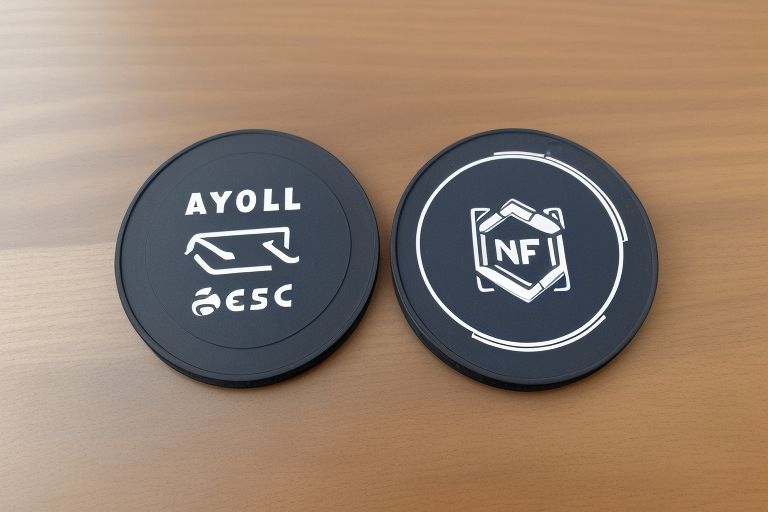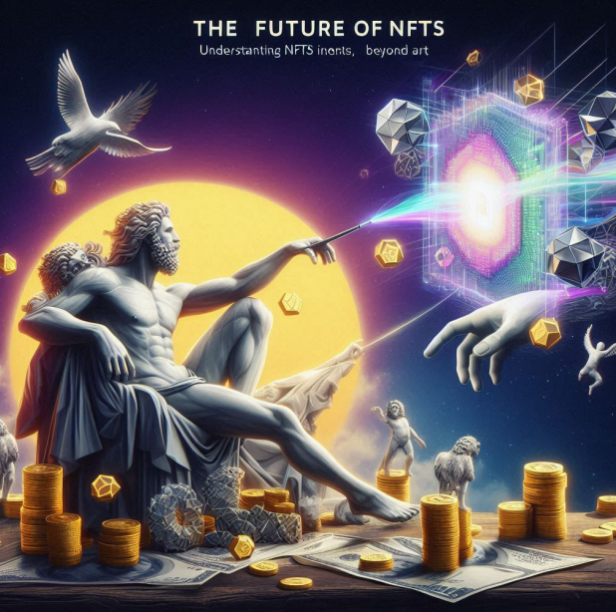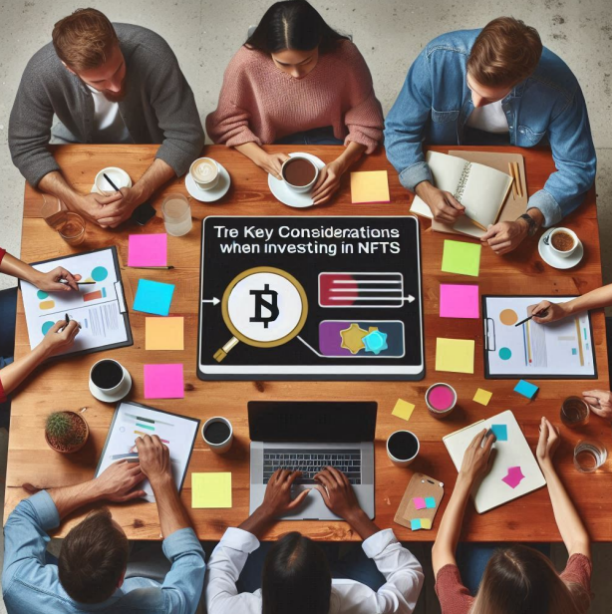Non-fungible tokens (NFTS) have gained massive attention in recent years. The NFTs earlier reached into the media through digital art and has been popular over the time. Whether it is music, real estate or gaming, NFTs are changing our perspective of investments in digital era. Let's take a closer look at how NFTs work, new uses, and how you can be involved in this article.
What Are NFTs and Why Do They Matter?
NFTs are digital assets stored on a blockchain technology now a day. Unlike cryptocurrencies each NFT is unique as it has its own value. This makes them precious in terms of owning rare things. According to CoinMarketCap, the market size of NFTs was estimated at $20 billion in 2022, which is to grow at 33.9% per year until 2030.

What's next for NFTs beyond art?
NFT now connected with digital art but slowly entering into industries with its own unique existence. Now, let's see the grounds where NFTs are proving helpful:

1. Real Estate
NFTs can be connected with physical real estate assets. For instance in 2021, a house sold for $650,000 as an NFT in Florida. This brings more clarity of ownership and gives an opportunity to every person who may wish to invest in real estate through blockchain technology. NFTs bring about the possibility of fractional ownership that is making real estate accessible to major everyday investors.
2. Music
Musicians are now selling exclusive content as NFTs. For example, Kings of Leon made $2 million in 2021 by offering their album as an NFT. Investors can now own pieces of music rights has been creating new income streams. These digital rights also cut out the middlemen which means a more profit for both artists and investors.
3. Gaming
NFTs are revolutionizing gaming industry that is allowing players to buy in-game assets like characters or items. In 2022, Axie Infinity’s NFT marketplace recorded $3.5 billion in transactions. As the gaming world grows, these assets will likely increase in value.
Key Considerations When Investing in NFTs
Before jumping into the NFT world, it’s essential to understand a few financial aspects. While NFTs are exciting, they’re also risky. Here’s what you need to know:

1. Liquidity
NFTs can be harder to sell compared to stocks or cryptocurrencies. According to NonFungible.com, the average holding period for NFTs was 47 days in 2022. This means investors may need to hold their assets longer before finding buyers.
2. Transaction Fees
When buying and selling NFTs, gas fees on the Ethereum blockchain can add up. In 2021, these fees ranged from $15 to over $100 per transaction. Always account for these costs when estimating your potential profits.
3. Valuation
Pricing NFTs is tricky. Unlike traditional assets, NFT value depends on factors like rarity and demand. A report by Chainalysis showed that 80% of NFTs sell for less than $200.Wwhile only a small percentage are worth millions. It’s crucial to do thorough research before making any investment.
Risks and Rewards: What You Should Know
NFT investments come with their own set of risks. Since the market is still new, regulations are unclear. Fraud and market manipulation, like "rug pulls" (where creators abandon projects after cashing out) are common. The potential rewards can be significant. High-profile projects like Bored Ape Yacht Club, which initially sold for $190 and now fetch over $100,000
How to Get Started with NFTs
Want to acquire some NFTs? Good luck; learn as much as you can. On OpenSea and Rarible alone, there is a stunning variety of different stuff for learning. Moreover, while investing in NFTs It's smart to invest in diversification. Avoid spending all the money at one NFT. Instead, invest in gaming, music, real estate and others. Thus, the risk decreases and the possibility of winning increases.
The New Era of Investing for NFTs- Future
NFT is a new world of investment. It has gone beyond just digital art; it deals with real estate, music and even gaming. Even though it provides the new opportunities for investment, the risks within them are equally exists. You can earn profit into this market quite well if you understand it better and diversify your investments.






